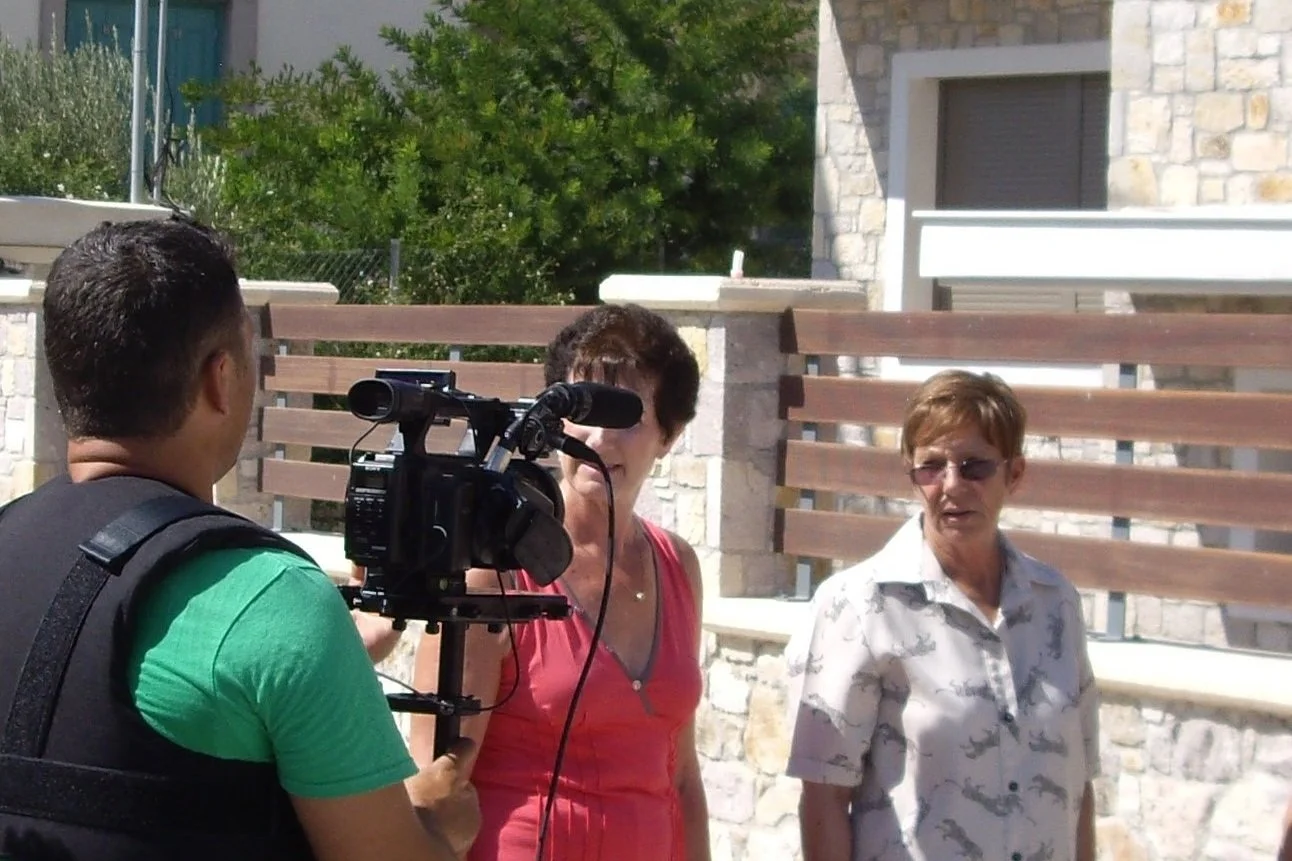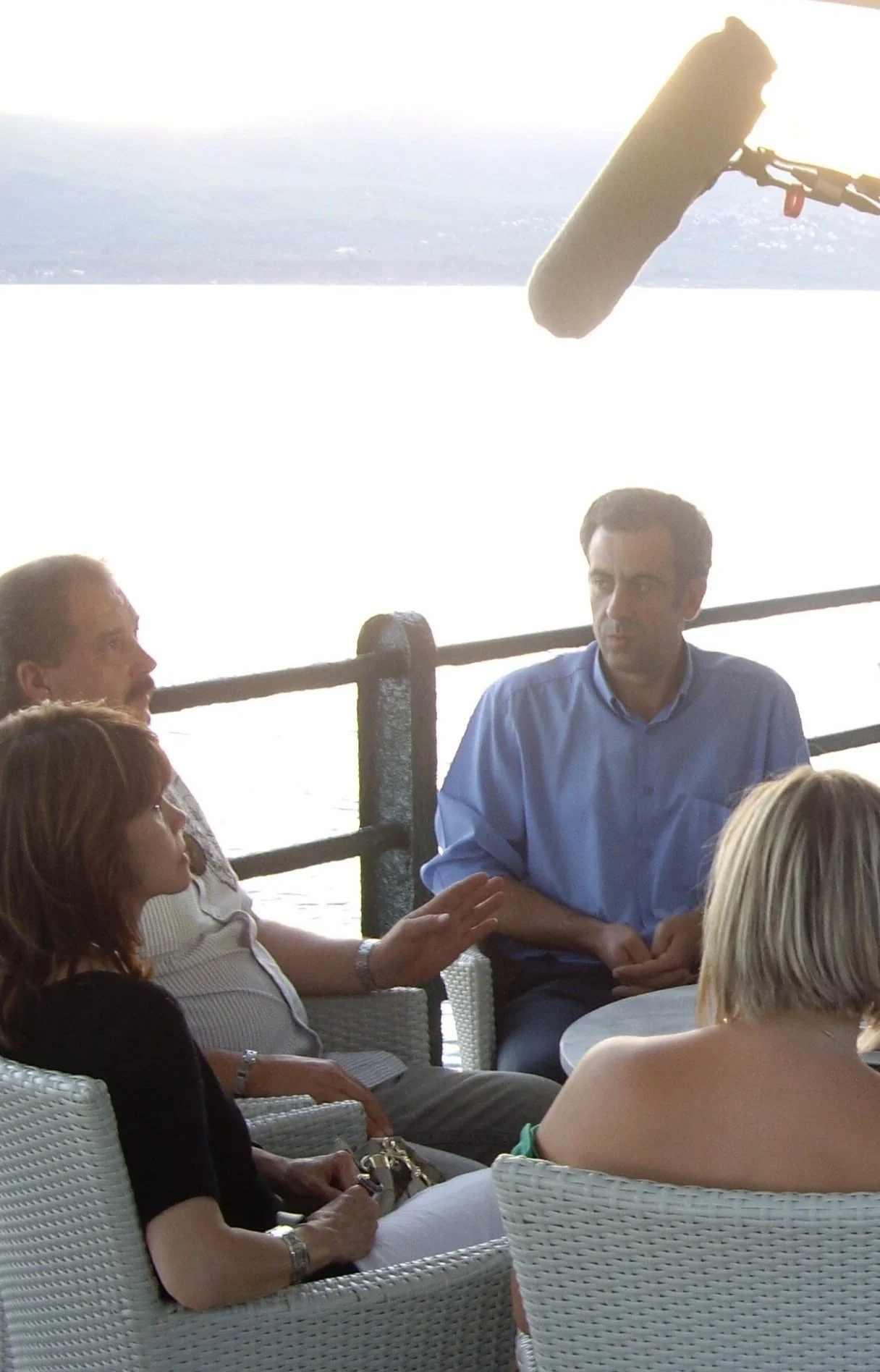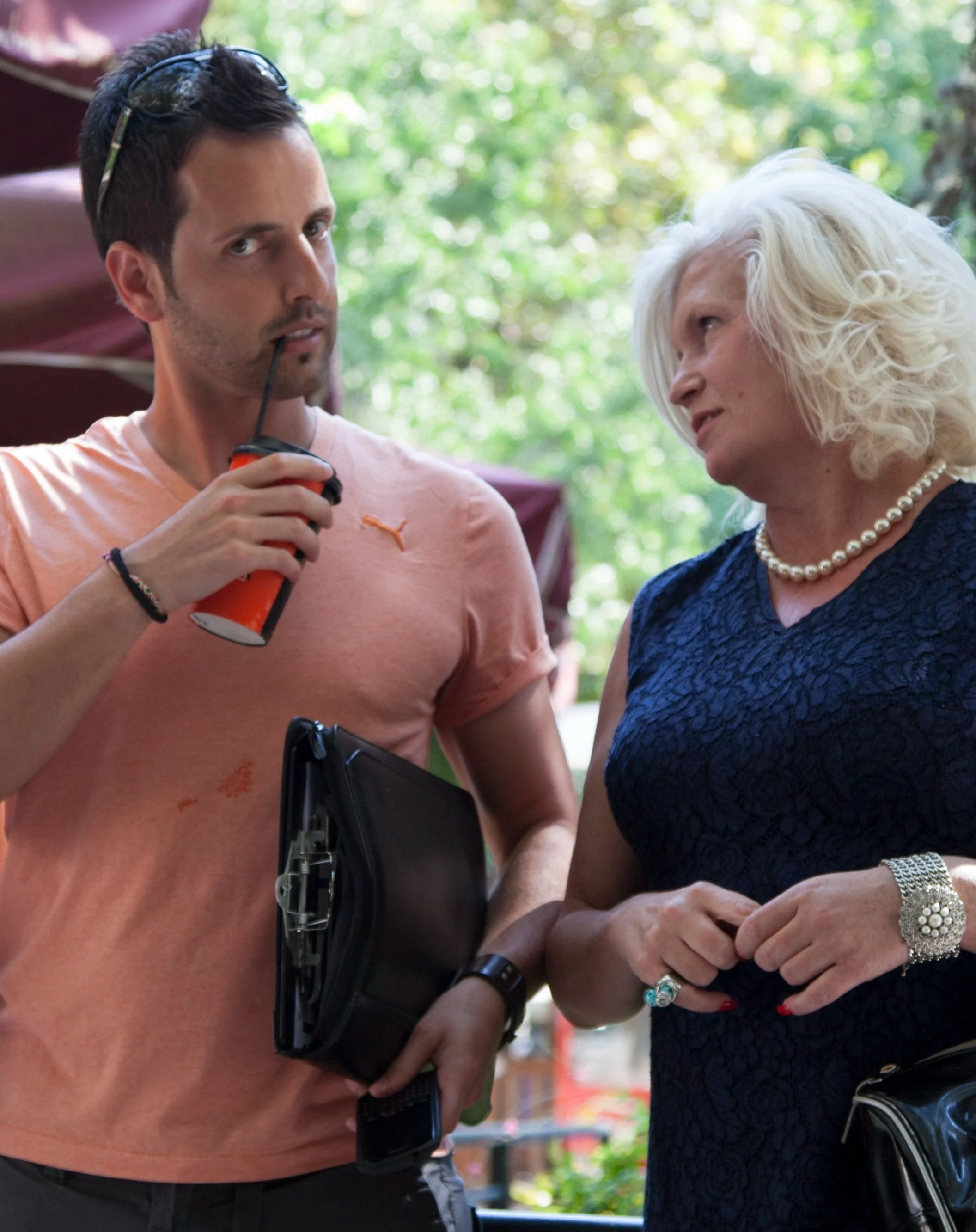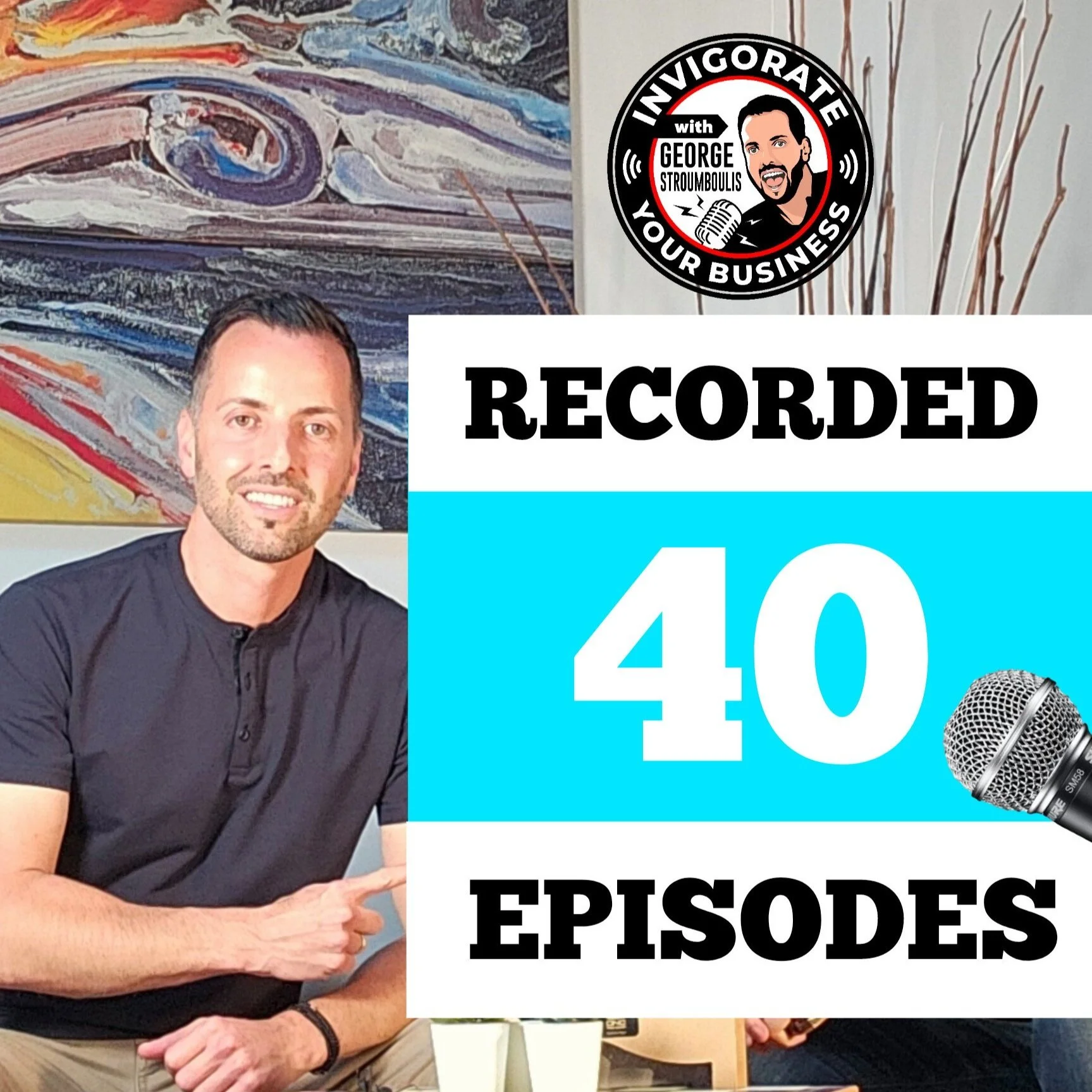NEGATIVE PRESS IS GOOD PRESS THEY SAY - MEDIA LESSONS
“What I thought was doing good in driving tourism and investment and interest from around the world, was actually perceived in the Greek media as extremely negative and I was taking advantage of the people. ”
CREATING A TV SHOW
Early on in my career, I created and launched a reality television show in Greece, helping promote and sell real estate to the world. The show was called Hellenic Home Hunting and it helped local property owners find buyers outside of Greece, to sell their real estate during one of the worst economic times in Greek history. The effort was a brilliant success and caught the attention of everyone. I mean, everyone.
GEORGE = BAD HUMAN?
I thought I was doing good in driving tourism, investment and global interest from around the world to a country that needed it (the only thing domestic and international newspapers were writing about Greece at this time was about the austerity measures, debts and overall negativity). Again, in my head I thought I was doing good until the media started writing about my efforts and they spun it to be perceived in the Greek media as extremely negative. They positioned it that I was taking advantage of the average Greek who had to sell their properties out of distress and under poor conditions.
The media loved this angle and ran with it - literally in every newspaper in Greece and major TV station covering it. They made me out to be a very bad human being and all this time I was stuck in my Manhattan, New York apartment unable to defend myself during this time.
I was even on morning talk shows with several minute segments talking about me and I wasn't even there able to defend myself. An example of this segment can be found on the Star Network Morning Show by clicking here.
ENJOY YOUR 15 SECONDS
What I didn’t know then was that this was very positive news. They were talking about me, my show and my website and that is the best type of press I could get. I was so caught up emotionally that I didn’t have the training to know that this is good news and that quickly my 15 seconds of relevance would evaporate - and it did. But before it did, I was picked up and covered by the global media outlet, Wall Street Journal, and they featured me on the cover of the printed edition.
LESSONS LEARNED
Looking back now, nearly a decade later, it definitely positioned me and made me stronger to understand that every action has a reaction. I learned that this was actually extremely poisitve and gave me real-life lessons on how to handle something beyond your control. Stay true to your intentions and the rest is just noise. That is all.
WANT TO WATCH THE ENTIRE SEASON OF HELLENIC HOME HUNTING? Make sure to visit this page with all the links and videos and let us know your thoughts by contacting us.
Filming the TV show, Hellenic Home Hunting with the crew in Mytilene (Lesvos), Greece. With the local real estate agent and the potential buyer, Helen Robinson, from Australia.
After the filming of our episode in Rethymno, Crete with the incredible crew, cast and fans. Ellen Hansen (realtor), Dimitris Sifakis (camera) and Dionysis Dimitrakopoulo (boom) celebrating.
At the time it was perceived as a provocative message, but to me it meant so much. The catch phrase I created was, GREECE IS NOT FOR SALE, BUT IT’S REAL ESTATE IS. I was working to have the diaspora reconnect with Greece and invest in the country.
Filming in Aedipsos, Evia with Greek-American buyers. Here they were talking with a civil engineer, architect and their realtor.
In between takes, I am taking a much needed Freddo Espresso break and talking with our potential buyer from the United Kingdom. Pictured here in Larissa, Greece.
ADVICE ON HOW TO HANDLE BAD PRESS ABOUT YOU
Handling bad press can be challenging, but there are strategies you can employ to effectively manage the situation. Here are some steps to consider:
Stay Calm and Assess the Situation: Take a step back to assess the nature and severity of the bad press. It's important to remain calm and composed, avoiding any knee-jerk reactions or impulsive responses.
Gather Information and Facts: Thoroughly investigate the situation to gather all relevant information and facts. Understand the context, the source of the bad press, and any specific claims or allegations being made. This will help you form a clear and accurate response.
Respond Promptly and Transparently: Address the bad press in a timely manner. Craft a response that is transparent, honest, and respectful. Clearly state your position, provide accurate information, and address any concerns or misunderstandings. Be prepared to offer evidence or supporting documentation if necessary.
Choose the Right Communication Channels: Determine the most appropriate communication channels to address the bad press. This may include issuing a press release, holding a press conference, responding through social media, or reaching out to individual journalists or media outlets. Consider the reach and influence of each channel and tailor your approach accordingly.
Engage with the Media: Actively engage with the media to present your side of the story. Offer interviews, statements, or opportunities for clarification. Building positive relationships with journalists can help ensure fair and accurate coverage.
Monitor and Respond to Social Media: Pay close attention to social media platforms where the bad press is being discussed. Respond promptly and respectfully to comments or questions, providing accurate information and addressing concerns. Avoid engaging in online arguments or confrontations.
Seek Legal Counsel if Needed: In cases where the bad press involves false or defamatory statements, consider consulting with a lawyer specializing in media or defamation law. They can advise you on potential legal options and guide you through the process.
Maintain Consistency in Messaging: Ensure consistency in your messaging across all communication channels. Present a united front and avoid contradicting statements or mixed signals, as this can undermine your credibility and worsen the situation.
Focus on Positive Actions and Rebuilding Trust: Take proactive steps to address any issues raised by the bad press. Demonstrate a commitment to improvement, be open to feedback, and take corrective actions when necessary. Engage in positive initiatives that showcase your values, integrity, and dedication to your stakeholders.
Learn from the Experience: Use the situation as an opportunity to learn and grow. Conduct a post-mortem analysis to understand what led to the bad press and identify areas for improvement. Adjust your strategies, policies, or practices accordingly to prevent similar situations in the future.
Remember, handling bad press requires careful consideration, transparency, and effective communication. By addressing the issue promptly, providing accurate information, and taking proactive steps to rebuild trust, you can effectively manage the situation and mitigate its impact on your reputation.

























